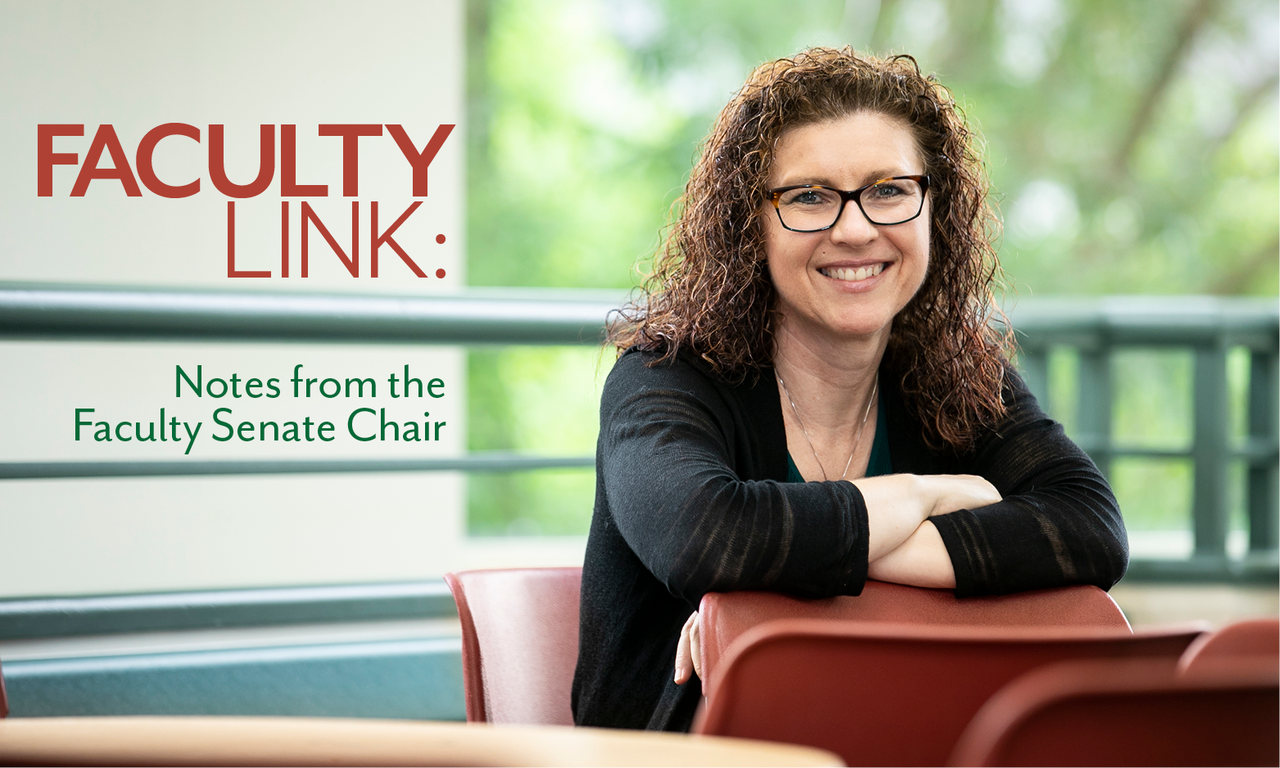In my last column, I wrote about the role of the Faculty Senate as the elected body representing the General Faculty.
I want to first take a step back and share what I think many of us are feeling: I miss having faculty meetings and Faculty Senate meetings face-to-face. I miss being able to read the feel of the room, to join in excited discussion, or hear the change in someone's voice that is accompanied by body position change that signals frustration or concern.
This means I am hyper-aware of the need for inclusion in participation among my colleagues when we have our governance meetings. Not everyone can see a change in body language when you have more than100 people on a Zoom call; ensuring that people have a chance to participate prevents the silencing of diverse ideas during discussion.
However, this also requires a level of trust that the meeting space will be treated as a place where civil discourse is privileged and community norms regarding meeting protocols are given primacy. I'm sure my colleagues across campus who study technology-mediated communication could provide ample resources on this, but I know my own personal experience has suggested that it is easier to have a misunderstanding when having a conversation via Zoom than it is sitting in a room next to someone.
The dialogue and debate that occurs during Senate meetings—and indeed in any faculty governance setting (such as college/school and department/program-level meetings)—requires that the participants are ready to engage in full and honest debate, having prepared themselves as best possible for the discussion at hand, trusting that their colleagues have done the same. This process also requires trusting that our colleagues will hear us when we respectfully disagree.
As an elected body, it is our responsibility to listen to and represent the General Faculty during our Faculty Senate meetings. As the agendas are published a week in advance, it is incumbent upon senators to seek input from those in their college or school on the topics that will be coming before the body for discussion and vote.
We can agree that the senate agendas have become quite long. However, I would argue that is a good thing, because the agendas now reflect the ongoing work of the faculty as we enact shared governance. Committees report at each regularly scheduled meeting, providing an opportunity for reciprocal dialogue between committees and the senate regarding committee work. This dialogue helps inform the work that committees do on behalf of the General Faculty.
Healthy debate is a cornerstone of the democratic process and the governance process. That debate requires preparation for the conversations at hand, and our willingness to ask hard questions and hear unwelcome answers. And it also requires that we trust our colleagues to be engaged in the process in good faith. As we move into a time where the university is discussing transformations of who we are at our intellectual core as well as in our physical environment, it is incumbent upon us as faculty to bring our diverse theoretical, methodological, and epistemological approaches to each conversation while honoring the process through which we have committed to engage.
I look forward to the dialogues that will occur around the Anti-Racism and Inclusive Excellence Task Force recommendations presented this week, as well as the next steps suggested by the Master Planning Steering Committee. I look forward to launch of the Mason Innovation Commission, which will be tasked with thinking about who we can become as a university. I look forward the community engagement with the materials produced by each of these groups, as we collectively work to shape where George Mason University is going next through civil discourse, good faith engagement, and trust that our colleagues who have represented the faculty in these efforts have done so authentically.

